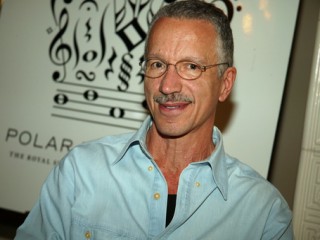
Keith Jarrett biography
Date of birth : 1945-05-08
Date of death : -
Birthplace : Allentown, Pennsylvania, U.S.
Nationality : American
Category : Arts and Entertainment
Last modified : 2010-11-22
Credited as : Jazz, Avant-Garde, Modern Creative musician, pianist, worked with Art Blakey's Jazz Messengers
0 votes so far
Jarrett started on the piano when he was three, and by the time he was seven he had already played a recital. A child prodigy, Jarrett was a professional while still in grade school. In 1962, he studied at Berklee, and then started working in the Boston area with his trio. He moved to New York in 1965, and spent four months with Art Blakey's Jazz Messengers. As a member of the very popular Charles Lloyd Quartet (1966-1969), Jarrett traveled the world and became well-known; he also began doubling occasionally on soprano (which he would utilize through the 1970s). During 1969-1971, he was with Miles Davis' fusion group, playing organ and electric keyboards; Chick Corea was also in the band for the first year. Jarrett can be heard "battling" Corea throughout Davis' Live at the Fillmore, but is in more creative form on Live/Evil.
Upon leaving Miles Davis, Jarrett permanently swore off electric keyboards. He had cut sessions as a leader for Vortex (1967-1969) and Atlantic (1971), but starting in November 1971, he recorded extensively for ECM (in addition to some sessions in the 1970s for ABC/Impulse), an association that continued into the 2000s. In the 1970s, Jarrett led two groups: an exciting unit with Dewey Redman, Charlie Haden, Paul Motian, and occasional percussionists (often Guilherme Franco); and a European band with Jan Garbarek, Palle Danielsson, and Jon Christensen that recorded the popular "My Song." In addition, starting in 1972 Jarrett began his famous series of improvised concerts that resulted in such popular recordings as Solo Concerts, Koln Concert, and the mammoth Sun Bear Concerts. By the 1980s, Jarrett was performing classical music as much as jazz, but in the 1990s he recorded extensively (including a six-CD live set) with his "standards trio," which included Gary Peacock and Jack DeJohnette. Although initially influenced by Bill Evans, Jarrett has had an original and influential style of his own since the early '70s, and remains a vital force in jazz.
















